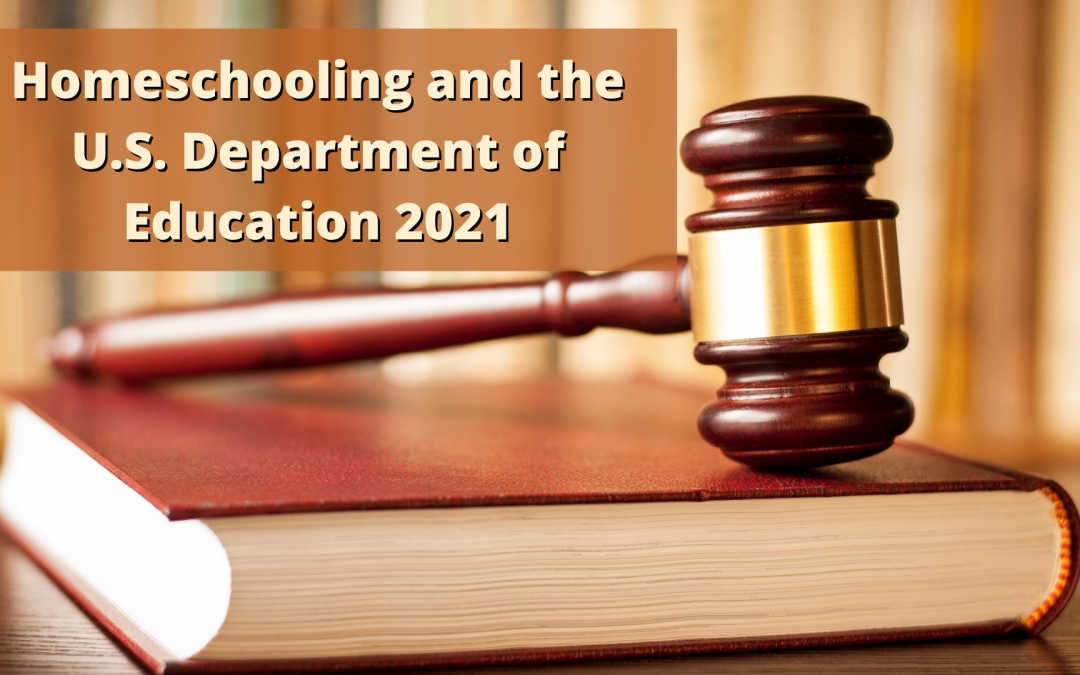U.S. Department of Education: Priorities 2021
At the time this article was written, Miquel A. Cardona had been nominated to serve the new federal administration in the role of Secretary of Education. It remains to be seen whether-or-not Mr. Cardona will be confirmed by the U.S. Senate to serve in the new cabinet. What is certain is that whoever stands as Secretary of Education in 2021, his or her primary role will be that of helping the states find a “safe and equitable path to reopening schools.” Over 50 million schoolchildren in the U.S. are counting on the Department of Education to serve as an active partner in this task while continuing to “advance policies that will benefit all schoolchildren and protect the most vulnerable.” (https://www.nytimes.com/2021/01/02/opinion/sunday/education-department-cardona-biden.html.)
Home Schooling: The Numbers
According to author John Edelson, writing for the South Florida Sun Sentinel on December 19, 2020, in the wake of the pandemic – “January 2021 will bring the largest growth to home schooling, ever. It will likely be quite some time before we achieve normalcy, and some parents who remain loyal to their school district’s plans now question their decision – Home schooling, once a “fringe” concept, is now firmly embraced by the mainstream.” (https://www.sun-sentinel.com/opinion/commentary/fl-op-com-homeschooling-growth-2021-20201219-d4hfmfdzjrecngmsewaouppo7m-story.html )
In addition to huge growth in home schooling numbers, there has been a re-thinking of the original fear that children being homeschooled after pandemic-related school closures were suffering significant academic setbacks because they were pushed into schooling at home. The Northwest Evaluation Association (NWEA), an Oregon-based non-profit research group, analyzed Fall 2020 testing data and found that “setbacks have been less severe than were feared, with students showing continued academic progress in reading and only modest setbacks in math.” (https://www.nwea.org/content/uploads/2020/11/Collaborative-brief-Learning-during-COVID-19.NOV2020.pdf )
U.S. Department of Education and Virtual Learning 2021
In November 2020 The U.S. Department of Education (USDOE) published the document “FY 2021 Management Challenges Facing the U.S. Department of Education November 2020.” (https://www.oversight.gov/sites/default/files/oig-reports/EDOIGManagementChallenges2021.pdf)
In that document the USDOE “identified five management challenges the Department faces as it continues its efforts to promote student achievement and preparation for global competitiveness by fostering educational excellence and ensuring equal access.” Of these five challenges, the first related directly to distance learning, remote learning, and virtual schools and was based on implementation of the Coronavirus Aid, Relief and Economic Security Act (CARES).
As part of the CARES Act, a grant program entitled Education Stabilization Fund-Rethink K-12 Education Models Grant provides support to State Education Agencies (SEAs) “to address the state-specific educational needs of students, their parents, and teachers in public and nonpublic elementary and secondary schools” for projects that:
- provide funding through microgrants so parents can meet the educational needs of their school-age children through increased access to high-quality remote learning,
- develop and/or expand high-quality course-access programs or statewide virtual schools, or
- demonstrate a rationale to address the specific educational needs of their States, as related to remote learning.
(https://www2.ed.gov/about/offices/list/oig/auditreports/fy2020/x20dc0003.pdf )
The Future of Homeschooling in the U.S.
One thing is certain – the coronavirus pandemic has materially re-focused how parents think about home school and which education models best serve their children’s academic needs.
The National Federation of Children completed a poll at the end of May 2020 that cited that “40% of families are more likely to home-school or enroll their children in a virtual school after the pandemic.” (https://www.federationforchildren.org/national-poll-40-of-families-more-likely-to-homeschool-after-lockdowns-end/ )
EdChoice published a study in September 2020 that “revealed that 23% of parents who were not home schooling before the pandemic indicated that they are ‘very likely’ to do so after lockdowns end.” In that same EdChoice study, “parents also agreed that virtual schools outperformed brick-and-mortar schools when it comes to ‘clear communication, classroom management and sound instructional practices.’ ” (https://www.edchoice.org/wp-content/uploads/2020/09/09-20-Virtual-Schools-During-COVID-UPDATED-1.pdf )
In Closing
Edelson’s Sun-Sentinel article best wrapped it up: “One of the many lessons learned from COVID-19? Home schooling will always have a place in the education system – long after this virus will be controlled.”
Additional Resources for Learning at Home:
https://www.ed.gov/coronavirus/resources-for-learning-at-home

